How long should I let my car idle to charge its battery?

Will you car battery charge while idling?
Has your car battery ever gone dead? Well if you don’t use your car regularly, it is highly possible that you have faced this before. Many of us have moved to parts of a city, where we rarely need to use the car. Well, the question which arises is how rarely do we use the car and how long before the battery flats out.
One month is a good amount of time. Your car can sit parked for a month before the battery goes dead. The battery in cars with more power might well be dead in two weeks, like a BMW or a Mercedes where the components of the car need the power to survive. Having said that, it is highly possible for you to face a situation where you have kept the car idling to let the battery charge.
Yes, your car battery will charge while it is idling and this is possible because of the alternator in the battery itself. The alternator will charge the car’s battery by providing it with electricity. The alternator, on the other hand, is driven by the engine in your car. As long as the engine is on, the alternator will keep on charging the battery.
It is a give and take sort of relationship between the two. But it is safe to keep a few pointers in your mind. The alternator will turn at idle but does not produce the maximum current. So, if you are trying to pull out a high amount of power from the battery while the car is at idle, the input charge will be a deficit in regard to the charge which is being drained out from the battery. This may cause important components like the car’s computer or the ignition to fail. From this, we can conclude that the battery gets charged slowly at idle and it would be the wiser decision to not place a high electrical drain when it is idling.
Does your alternator charge your car battery at idle?
Yes, the alternator does charge the battery in your car but it must fulfill two criteria:
- The engine must be running (even at idle, the engine runs).
- The alternator must be in a proper, working condition.
The engine basically turns the serpentine belt which in turn moves the alternator. The alternator now puts a charge in the car battery. Even though the belt turns faster when the car is in motion but the charge produced in the alternator is regulated by the ECU in the car and it produces the same voltage even when the car is in motion or it is idling.
But my suggestion would be to take the car out for a spin now and then otherwise it is impossible for the battery to recharge fully. This increases the longevity of the battery by a considerable amount.
How long does it take to charge the battery at idle?
Even after considering the fact that your battery is dead, it will not take an eternity for your battery to charge. The battery will demand a lot of current because of the fact that it has been discharged. Around 60 amps or more.
Realistically speaking, a flat battery can be charged up to 80 percent in 2 hours. But to make this possible, the alternator has to manage 14 volts at the battery terminals, the whole time it is being charged.
It is also important for people to realize that cars are not meant to be kept idle. They are supposed to be driven around.
Some basic facts:
- A question might arise in your mind about whether the alternator will charge your battery if the car is in neutral. Well, the answer is yes. We know that it is unlikely for someone to be sitting in their car while it is neutral but as long as the alternator and the engine are in good condition, the car will acquire charge at neutral.
- Does your car charge while driving? Yes, this is the best way to charge your battery. Driving the care more will recharge the battery fully. The various components which draw power from the car’s battery work the best when the car is being driven around. This is a fact known by most car owners.
How to recognize if your battery is being charged?
You can check the battery with a voltmeter to make sure it is being charged.
- The black lead should be connected with the negative end of the battery and the red end to the positive side.
- You should be getting a reading of around 12.6 volts.
- You can also turn on the vehicle and check the voltage at the battery terminals.
- If it is around 14-15 volts, the alternator is working just fine and there is no need for your battery to be replaced.
A battery lasts for about 5 years. If your battery has crossed the threshold limit, you might need a replacement.
How long should I idle my car to charge the battery?
While some people would recommend idling your car to charge the battery, it is not widely recommended. In older vehicles, idling your car for 15-20 minutes can give your battery enough charge to restart your vehicle, but it is not always great for your vehicle.
In modern cars, there are battery management systems in place that will extend your battery life. These technologies also work to limit your car’s ability to charge at low RPMs, so unless you are traveling at higher speeds, your battery will receive a small amount of charge from idling.
Idling for too long can cause problems for your car also. It will contaminate the car’s oil faster, which offers less protection for your engine. The increased amount of exhaust particles will impact the performance, emissions and result in component failure.
Although in some cases you can, it is best to avoid idling your car to charge its battery. Instead, opt for a battery charger that can charge and maintain your battery as required.
Does revving the engine charge the battery?
Yes, revving your engine will charge your battery, but not all the time. Generally, the car system ensures the battery is charged at all times. However, significantly discharged batteries will require you to rev the engine to provide some charge.
Commonly used lead-acid batteries will usually be charged when the alternator is running. However, revving the engine can cause the battery to charge faster, as there is an increased amperage.
Revving over continued time will use more fuel and energy, causing consumption to rise. Although it can be helpful at times, we do not advise doing this long-term, as revving your car can damage the engine.
Revving can cause abrupt temperature changes that will cause stress between the components of the engine, leading to expensive damages if done over extended periods.
Does idling drain your battery?
Yes, idling your car for as little as two minutes will be the equivalent of driving a mile! Leaving your car idling will waste not only gas but does not allow your battery to charge. Not allowing your battery to charge will drain its power during idling.
During idling, your engine and alternator run slowly. The alternator will provide electricity to charge the battery. However, if you are using high-powered accessories, then the alternator won’t meet the electrical demand. In these instances, your battery will make up the difference and become drained.
Too much idling can cause your battery to drain significantly and can cause lasting damage. When stuck in traffic, consider turning off your car. It will not only save on fuel but prevent excess strain from being put on your car battery.
You can also consider opening the windows instead of using the AC when driving in warmer climates or adjusting the heaters to use less energy and save your battery.
How long will a car battery last without being charged?
How long your car battery lasts without being charged will depend on how old the battery is and its charge levels. New and fully charged car batteries will last around two weeks before needing to be charged.
The time will depend on any functions that are still running, as these will drain the battery quickly. Any radio systems, headlights, or alarms will require energy even when the car is not on, taking power from the battery to do so.
After two to three months, the battery will become fully discharged, and your engine will not start. You will need to consider a jump start or battery charger to restore your battery in these cases.
For older batteries, the time will depend on their charge levels and any damage they might have. Again, you will also need to consider any systems that will require power from the battery during this time.
Does a car battery charge while in park?
Yes, your car battery will charge while in park. Your vehicle will charge the battery whether it is driving, idle, or in park. Whether you are idling your car in park or not, the battery will still charge.
Any electrical loads that you add to the car while in park can slow down the charging process of your battery. Using the radio, lights, or AC units will drain on the battery and alternator, removing power instead of charging it.
If you leave your car in park or idle for too long, though with electrical drains, you will see a significant loss of power from your battery, resulting in a drained or flat battery. In these cases, you will have to recharge your battery before driving your car again.
When your engine revs as you change from park to drive, there will be enough charge from your alternator to charge the battery at a faster rate.
How many volts should a car battery lose overnight?
The number of volts a car battery loses overnight will depend on the battery and its health and the car and any demands on the battery. Overnight, you should expect your battery to lose a maximum of 0.01V.
Usually, your security system, clock, and other electrical features will take some power from the battery, but this is to be expected and should be minimal. Generally, your car battery voltage should not drop between 12.6v overnight and should charge up to 13-14V while running or charging.
In older batteries is where we are likely to see more dramatic volt dropping overnight. Batteries that are damaged or are quite old can struggle to maintain their voltage overnight, with some owners seeing as much as a 75% drop in battery levels.
You will need to inspect the battery for signs of a parasitic drain or other common faults in these cases. If you are unsure, a mechanic can assist. A drop of more than 0.01V should be considered suspicious and inspected, especially on newer batteries.
How long does it take an alternator to charge a dead battery?
Generally speaking, your alternator will not be able to charge a dead battery. While it provides charge and maintains your battery during driving, a dead battery is too much to revive.
What your alternator can do, is recharge drained and flat batteries, though. Depending on the charge level of the battery, your alternator can charge your battery within half an hour of driving at highway speed.
Charging your battery this way often requires a battery to be charged beforehand by an amp charger. If the battery is deeply discharged, 15-30 minutes on a 40-amp charger will provide charge and give the alternator a chance to finish charging the battery while driving your car.
The amp used to charge your battery will depend on the type of your battery and any damage it has suffered. In some cases, switching to a lower amp (5-10 is preferred) will allow the battery to continue charging without any overheating problems arising.
Can a car battery die when it’s running?
Yes, your car battery can die when it is running. Your car battery’s purpose is to provide the initial power required to start your car’s engine. Once the vehicle is up and running, the alternator can take the ability to run your car’s electrical system and maintain battery levels.
Should anything happen to your alternator, if it stops providing a charge to the battery, your car battery can die while the engine is still running. If your battery has a malfunction during driving, it could die while the car is still in use. In these cases, consult a mechanic who can inspect your vehicle and provide a clear diagnosis.
If your battery is old or already damaged, there is an increased chance of it dying while the car is in use. There should be some signs of damage to the battery beforehand, though. Common symptoms need to jump-start your vehicle regularly, dim interior and exterior lights, and the battery is periodically dying or shutting off the engine.
If you experience any of these issues, be sure to contact a mechanic to provide further assistance.
What drains a car battery while it is off?
There are a few things that can drain your car battery when your car is off. The top cause is leaving on your headlights. Leaving interior or exterior lights on will drain the battery and result in a flat battery if done overnight.
Loose connections can also drain the battery. The positive and negative terminals connected to your battery can come loose over time or even corrode. These can cause poor transmission of power and result in a drained battery. To avoid loose connections and corrosion, clean your battery terminals frequently!
The weather can also drain your battery while it is off. Adverse weather conditions can cause problems for older batteries. The extreme heat or cold can impact your battery’s performance and drain it, especially if left in extremely cold weather overnight.
Newer batteries are less susceptible to this drainage, but it is still best to ensure there is minimal exposure to adverse weather conditions where possible.
Final Thoughts
It is quite possible that you are in that stage of your life where you don’t really need to drive around anymore. Well, you have deserved it, but what can you do about your car?
You can use a smart charger which gives your battery exactly the charge it wants. Unlike a traditional charger, it will not overcharge your battery and you can plug it in and forget the rest. Otherwise, you can always take it around for a spin!
Remember the time, when you got the car for yourself? You would have never imagined that it would be lying around as this, did you?

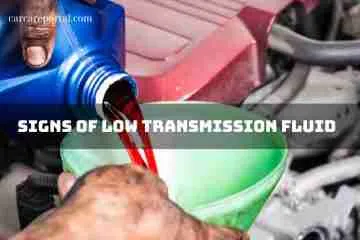

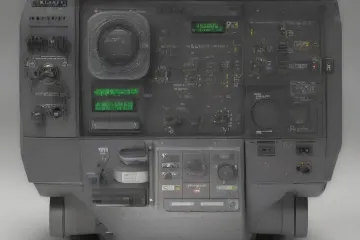
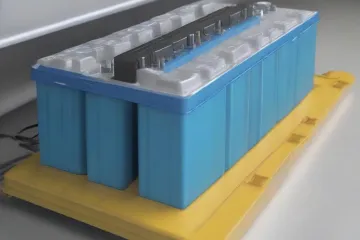
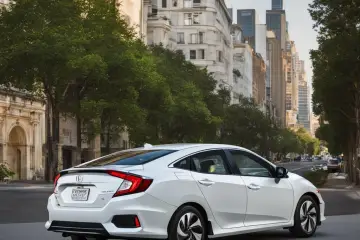
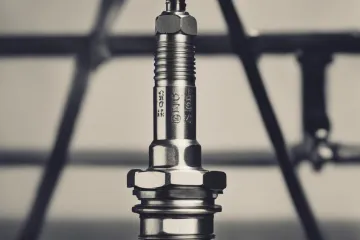


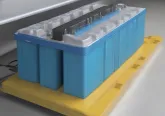


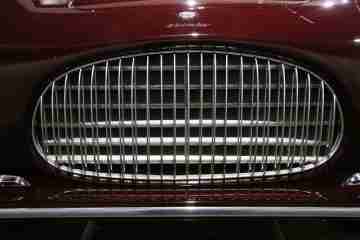

No Comment